- Home
- Parnell Hall
Presumed Puzzled Page 5
Presumed Puzzled Read online
Page 5
Crowley nearly swerved into a truck. “Are you kidding me?”
“You’re not investigating the case. You did this as a favor.”
“I’m a police officer.”
“And a very good one. You don’t infringe on other officers’ territory. You don’t horn in on cases that are outside your jurisdiction.”
“Cora—”
“And the guy’s a terrible witness. He couldn’t ID the photo. He just looked up the charge on the computer. Hell, Perkins did that. You think Chief Harper won’t be tracing credit card charges?”
“So? He’ll find out anyway.”
“Yeah, but Becky Baldwin won’t be pissed at him for doing it.”
Crowley grinned. “You’re something, you know it?” He looked over at her. “So, what you gonna do now?”
Cora cocked her head. “What’d you have in mind? Something I have to ask Stephanie about?”
“I’m going back to the office. I got work. I mean, what are you going to do with your case?”
Cora grimaced. “I don’t know. It’s a dead end. I guess I’m going back to Bakerhaven.”
“You don’t want to talk to the other desk clerk?”
“Bob? I thought he only worked on Tuesday.”
“Perkins will find him.”
“Nah, I gotta get back.”
“Oh,” Crowley said. “You expect me to talk to him?”
“Weren’t you going to take me?” Cora said.
“Yeah.”
“So go without me. I’ll leave you the photo.”
Cora handed it to him. He stuck it in his pocket, wrenched the wheel, swerved around a garbage truck.
“Is this because I asked you if Stephanie knew you were here?”
“Sergeant Crowley, you have a very suspicious mind.”
Crowley dropped Cora off at her car. He was on his way back to the station when Perkins called with the address.
* * *
Bob was semi-retired, lived in a rent-stabilized one-bedroom walk-up apartment on East 71st Street. He was watching some reality TV show and wouldn’t turn it off. He was deaf, and the volume was loud.
“All right,” he said. “What do you want?”
“You’re a desk clerk at the hotel on Fifty-seventh Street?” Crowley shouted.
“What?”
Crowley picked up the remote control, pushed the Mute button. “This is a police investigation. If I have to take you downtown so you can hear me, I will. You wanna leave the Mute on, or you wanna take a ride?”
“Well, when you put it that way,” Bob said. “What you wanna know?”
Crowley passed over the photo of Roger Martindale.
“I couldn’t see this with the sound on?” Bob grumbled. He looked at the photo, looked back up. “What about him?”
“Have you seen him?”
“Sure.”
“Where?”
“At the hotel. I checked him in a couple of times.”
“Who was with him?”
“He came in alone.”
“Send anyone up to his room?”
“It’s not that kind of hotel.”
“I mean a visitor. Did you send any visitors up to his room?”
“No. No one asked for him.”
“Are you sure?” Crowley said.
“I’d remember.”
“Why?”
“That’s my job.”
“You know what days these were?”
“No, but it’ll be in the register.” Bob cocked his head. “What’d this guy do?”
“He got killed.”
Bob’s mouth fell open. “In the hotel?”
“No. In Connecticut. They’ve arrested his wife for it. If he was seeing another woman, it would be a motive.”
“Can’t help you,” Bob said. His eyes widened. “Wait a minute! This is the murder, isn’t it?”
“What murder?”
“The one in the paper!”
There was a copy of the New York Post on the coffee table. Bob grabbed it up, turned the pages.
“Here it is!”
On page 8, under the headline BUTCHER OF BAKERHAVEN, was a picture of Paula Martindale accompanied by a picture of her husband. The pictures were not current, in that Paula was not in jail and her husband was alive. They weren’t even recent, just what the Post had been able to pull from their archives in time to make the late city edition. Roger looked vaguely like himself, but Paula might have been posing for a perfume ad.
The accompanying article, such as it was, said that Roger had been killed, and Paula had been picked up for questioning. The word “alleged” was used several times. Crowley wondered if it applied to the headline.
“That’s it, isn’t it? That’s the man you were asking about. I knew he was familiar.”
“That’s the case,” Crowley said. “So you can see how important this is.”
“I do, but the facts are the facts. He didn’t have a visitor. Of course, anyone in the hotel could have called on him. Anyone who’d rented a room.”
“Sounds like a lot of work for Perkins.”
“Huh?” Bob said.
“Another officer will have to check reservations. For anyone he might have seen.”
“Well, you’re on the right track,” Bob said.
Crowley frowned. “What do you mean?”
“About it probably being a woman.”
“Why do you say that?”
“Both times he checked in, he checked out about two hours later.”
Back in the car, Crowley sighed.
Cora wasn’t going to be happy.
Bob was too damn good a witness.
He’d have to call it in.
Chapter
16
Becky was pissed. “You weren’t supposed to be finding evidence for the prosecution.”
“I’m just as disappointed in Crowley as you are,” Cora said.
“Disappointed, hell. I don’t recall hiring Crowley. I thought I hired you.”
“You never complained when he came up with things in our favor.”
“When has he ever done that?”
“I was generalizing.”
On the TV over the bar, Rick Reed was holding forth in front of the police station. Cora and Becky were in the Country Kitchen bar because Becky was ducking Rick Reed. Crowley had told Chief Harper what he and Cora had found; Henry Firth had decided the credit card evidence, plus two eyewitnesses who could place Roger Martindale in hotel rooms rented by the hour, made a strong enough case to go ahead and prosecute; and Rick Reed, Channel 8’s clueless on-camera reporter, had been dispatched to harass key figures in the drama with ridiculous questions.
Ordinarily, Becky liked sparring with Rick Reed. She always came off well, and she looked great on camera. But faced with an unlikable defendant and a hopeless case, she just didn’t have the heart for it. Besides, she was furious with her own investigator and was afraid it might show.
Becky took a long pull on her glass of scotch. “You do recall why I hired you to get this information?”
“So you’d know what evidence the police might be able to dig up.”
“Yes, you know why? Because they don’t share that evidence with me. That’s why I see no reason to share that evidence with them.”
“Come on. There’s discovery. They can’t spring surprise witnesses on you. They have to give you a list.”
“In court,” Becky said. “They have to do that in court. They don’t have to outline their whole case for me before I make a fool of myself on television.”
“What’s the widow’s story?”
“She denies it.”
“She denies she killed him?”
“She denies he was having an affair. ‘Roger would never do anything like that, it must be something else, whatever he was involved with got him killed.’”
“Like getting married.”
“Watch it.”
“You ready to let me talk to her now?”
“Oh, now that it’s going to trial and you really could wreak havoc with any confidential communications?”
“No, now that it’s going to trial and it’s a hopeless case. Come on, how much worse could I make it?”
Chapter
17
“Cora wants to ask you some questions.”
Paula sneered. “Why? Aren’t you good enough?”
Becky surveyed her client with distaste. “No, I’m not. The evidence is stacked against you and you’re playing coy with your lawyer. You got a chip on your shoulder that’s blinding you to everything about the case. You can’t accept a given fact when it slaps you in the face. You’re in a permanent snit. You’re so full of smoldering rage I can’t let the TV cameras get within a mile of you or you’ll pollute the jury pool. You couldn’t do a better job of wrecking the case if you took out a full-page ad in The New York Times of yourself holding a bloody butcher knife screaming, ‘I did it!’ I’d like you to talk to Cora because her career doesn’t hinge on getting you off for this crime. She’s working for me, and she’s not intimidated by what you say.”
“Nice speech. I’m sure it makes you feel better. Need I remind you that I’m still in jail? When’s my bail hearing? When do you plan on getting me out?”
“How does the next millennium sound?” Cora said.
“Do I have to put up with that?” Paula demanded.
“Absolutely not,” Cora said, and got up.
“Cora—”
“Let her go,” Paula said. “She’s no help anyway.”
Cora, who was nearly to the door, turned back. “You want help? Come up with one person who saw you anywhere, besides your house, during that one-hour period when your husband came home and when the chief and I arrived.”
“No one saw me,” Paula blurted.
“Why not?”
“I was tricked.”
“You were tricked?” Cora taunted. “A bright woman like you? How in the world were you tricked?”
“With a crossword puzzle!”
The air went out of Cora as if from a paper bag. “What?”
“A crossword puzzle was left on my doorstep.”
“I’m ready for the looney bin.”
Becky waved at Cora to be quiet. “What in the world are you talking about?”
“See?” Paula said bitterly. “That’s why I can’t tell you where I was. No one will believe me.”
“I can’t imagine why not,” Cora said. “You’re charged with murder. It’s the perfect time to make up fairy stories about crossword puzzles.”
“Can you tell her to shut up?”
“I thought I did.”
“You did. I just didn’t do it.”
“Damn it,” Becky said. “Enough sparring. Let’s hear the story. You say a crossword puzzle was left on your doorstep?”
“That’s right.”
“When?”
“I don’t know when. I found it at five thirty.”
“In front of your door?”
“Yes. It was a crossword puzzle printed on a sheet of paper.”
“Why did that make you go out?”
“I solved it.”
“And then you went out?”
“Yes.”
“Why?”
“Because of what it said.”
“What did it say, why would that make you go out, what in the world does this have to do with your missing husband?” Cora said impatiently. “Come on, girl, don’t make your lawyer drag it out of you. What the hell happened?”
Paula glared at Cora for a moment, then seemed to wilt. “There was a message on top of the puzzle. It said, ‘If you want to know where your husband is, solve this, drive to the mall, park in the far end of the Walmart parking lot. Don’t get out of your car; as soon as you’re parked roll down the window. Wait ten minutes, set the puzzle on fire, holding it out the window by one corner. When it’s burned, roll up the window and wait for further instructions.’”
“That’s what you did?” Becky said.
“Yes.”
“What happened?”
“Nothing. I waited for half an hour and nothing happened. I felt like a fool. I figured I’d been tricked. I went home and found my husband.”
“What did the puzzle say?”
“It doesn’t matter.”
“It does if you’re going to tell that story.”
“You want me to talk?”
“Not in a million years. But if you wind up having to tell that story, I need to know the punch line. What did the puzzle say?”
“Some idiotic rhyme. I can’t remember it exactly.”
“What was the gist?”
Paula took a deep breath. “There was another woman.”
“Oh?”
“It said Roger was seeing another woman. Which is a vicious lie.” Paula started getting worked up. “It couldn’t have happened. Roger wasn’t seeing anyone. I would not have stood for it. I’d have—” She broke off.
“You’d have what?” Cora said.
“I wouldn’t have killed him. He was my husband. I’d have killed her.”
“Whoa! Whoa! Whoa!” Becky said. “This is all well and good when it’s just us, but it’s not the sort of thing I would like you to tell anybody else.” She said to Cora, “You see the problem with confidential communications?”
“What?” Paula said.
“You can think those things, but don’t utter them. You’ve made your point. As far as you were concerned, Roger wasn’t seeing another woman. That’s what you thought then. Now there’s the credit card evidence and the eyewitnesses.”
“Eyewitnesses to what?” Paula demanded. “Did they see a woman, answer me that. All they can show is he was in a hotel. There’s a lot of reasons people go to hotels. I’m sure he was there for another purpose. We have to find out what that purpose was. Which is what you should have been doing in the first place.”
“Yeah, right, I’m a bad girl,” Cora said. “As I recall we left you out at Walmart with a burning crossword in your hand. Care to elaborate on that?”
“Do I have to listen to this?” Paula said.
“Oh, yeah,” Becky said. “And stuff ten times worse. You were lured to the mall by a crossword that said your husband was with a woman.”
“Yeah,” Paula said. “But the police don’t know that.”
Becky blinked. Opened her mouth to say something, closed it again.
Cora grinned.
“So,” Paula said. “Can you get me out of here?”
Becky sighed. “You’re not making it easy.”
Chapter
18
“You know what I’d like?”
“A different client?”
Becky leaned back in her desk chair. “I meant my second choice. Something practical.”
“Such as?” Cora said.
“Okay. The cops have these witnesses you conveniently handed them, they’re going to go nuts trying to find the woman he was having an affair with. Here we have the advantage.”
“How is that an advantage?”
“We don’t want to find the woman he was having an affair with. In the first place, we don’t believe there was a woman he was having an affair with, and even if there was, we’d be very happy if she fell off the face of the earth. Finding her is not a high priority.”
“I’m glad to hear it.”
“Finding whatever else he was using that hotel room for is. That won’t be easy, because the police are undoubtedly swarming all over his office, searching his house, checking his email, and downloading the files from his computer. But we know one thing they don’t.”
“What?”
“The crossword puzzle. The police don’t know about the crossword puzzle. And that’s a good thing.”
“Because they’d think we were nuts.”
“No, because it’s a big fat clue. The crossword was printed on a piece of paper. Which means it was probably done on a computer. If we can find that computer, we can kn
ow who’s masterminding the whole thing.”
“You’re assuming there is a crossword puzzle,” Cora said. “Your client’s had a day in jail to think up any story she likes. So she makes up a story about a crossword puzzle that lured her out of the house. She realizes she’s going to have to produce it, which she can’t do, so she makes up this preposterous story about burning it in the mall parking lot. I sincerely hope you are not sending me out there to look for the charred corner of a piece of paper.”
“It would be nice.”
“And you know what it would prove? Nothing. You give me ten minutes and I’ll bring you back the charred corner of a piece of paper.”
“I’m not asking you to manufacture evidence.”
“Oh, there’s a quote! I can see them using that when they name you Lawyer of the Year: ‘A pillar of integrity, she is reputed to have said, “I’m not asking you to manufacture evidence.”’”
“On the other hand, if you could find evidence this puzzle existed—”
“I could probably walk on water.”
There was a knock on the door.
Becky yelled, “Come in.”
The door was pushed open by a dweeby-looking middle-aged man, pasty, pudgy, balding, with unflattering tortoise-shell glasses, just the sort of self-effacing person who normally would have said, “Sorry, am I interrupting?” But he was too agitated. Or, Cora figured, what passed as too agitated for him.
“Is it true?” he demanded.
“Is what true?” Becky said.
“You’re representing Paula Martindale?”
“I’ve been retained as her lawyer.”
“How can you do that? How can you represent that woman? She killed her husband, and you’re going to help her get away with it.”
Becky smiled. “That’s not the way the legal system works.”
“I know the way the legal system works. If you have enough money, you can get away with anything. How much does it cost to get away with murder?”
“Excuse me,” Cora said, “but who the hell are you?”
“I’m Ken Jessup. Roger was my friend. And that woman sucked the lifeblood out of him until he was too weak to defend himself, and then she killed him, butchered him like a pig. And she’s not denying it. She’s just sitting there calmly waiting for you to get the legal system to tell her she’s free to go.”

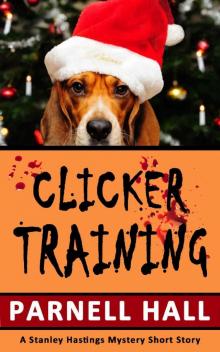 Clicker Training
Clicker Training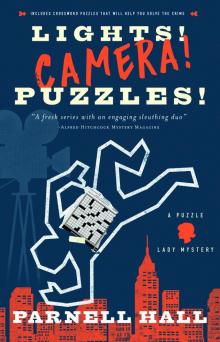 Lights! Camera! Puzzles!
Lights! Camera! Puzzles!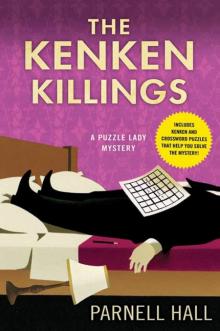 The KenKen Killings
The KenKen Killings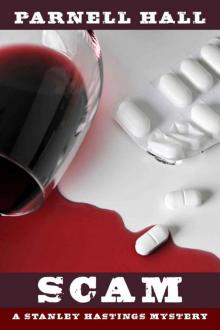 12-Scam
12-Scam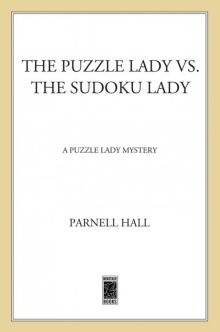 The Puzzle Lady vs. the Sudoku Lady
The Puzzle Lady vs. the Sudoku Lady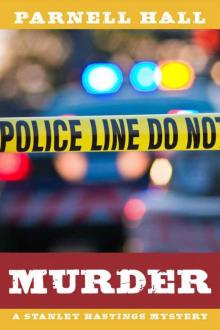 2 Murder
2 Murder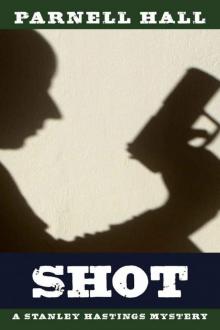 7 Shot
7 Shot You Have the Right to Remain Puzzled
You Have the Right to Remain Puzzled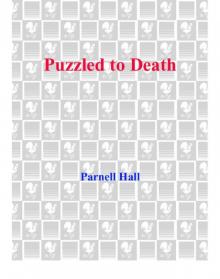 Puzzled to Death
Puzzled to Death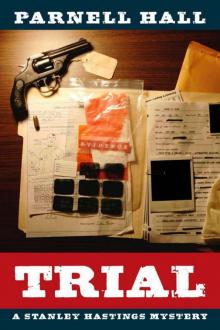 11-Trial
11-Trial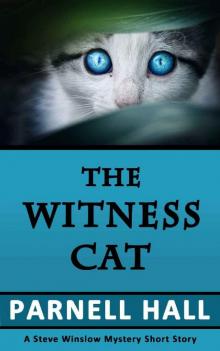 The Witness Cat (Steve Winslow Mystery)
The Witness Cat (Steve Winslow Mystery)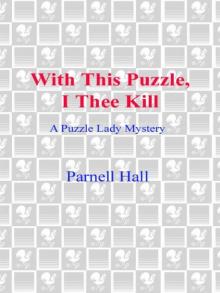 With This Puzzle, I Thee Kill
With This Puzzle, I Thee Kill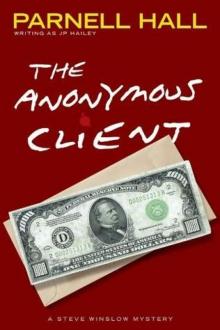 The Anonymous Client sw-2
The Anonymous Client sw-2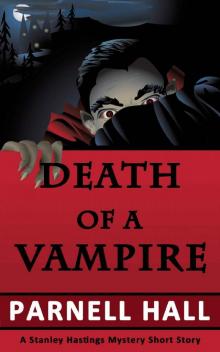 Death of a Vampire (Stanley Hastings Mystery, A Short Story)
Death of a Vampire (Stanley Hastings Mystery, A Short Story)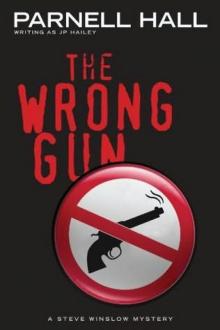 The Wrong Gun sw-5
The Wrong Gun sw-5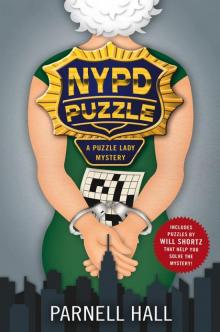 NYPD Puzzle
NYPD Puzzle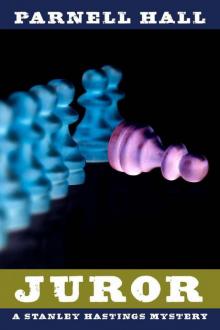 6 Juror
6 Juror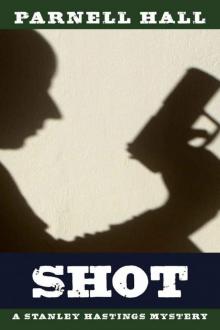 07-Shot
07-Shot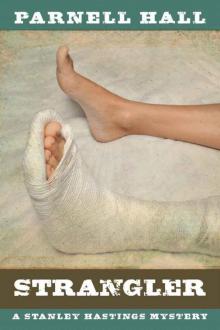 04-Strangler
04-Strangler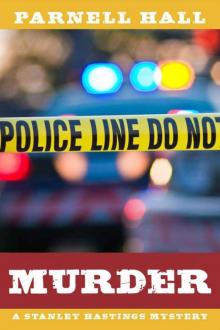 02-Murder
02-Murder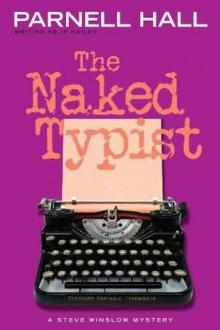 SW04 - The Naked Typist
SW04 - The Naked Typist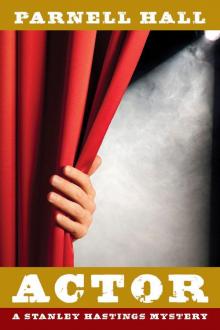 Actor
Actor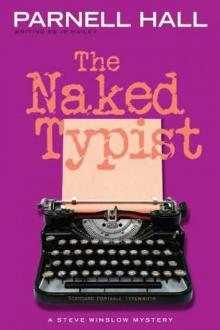 The Naked Typist sw-4
The Naked Typist sw-4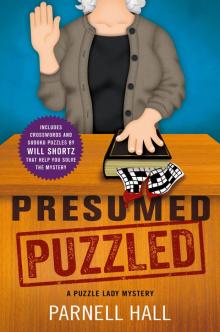 Presumed Puzzled
Presumed Puzzled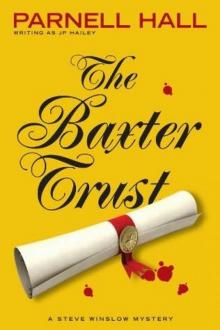 SW01 - The Baxter Trust
SW01 - The Baxter Trust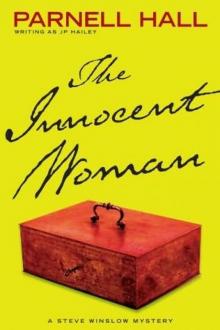 SW06 - The Innocent Woman
SW06 - The Innocent Woman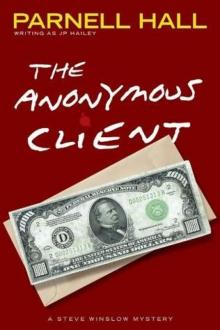 SW02 - The Anonymous Client
SW02 - The Anonymous Client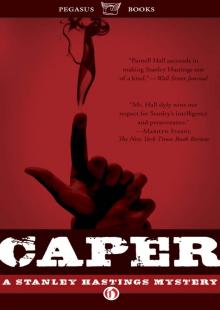 Caper
Caper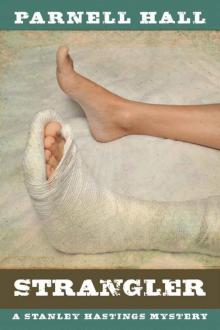 4 Strangler
4 Strangler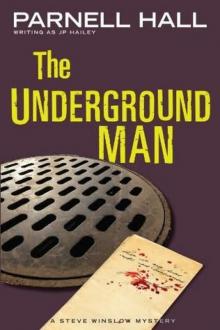 The Underground Man sw-3
The Underground Man sw-3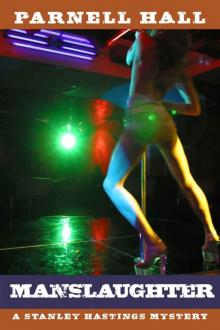 Manslaughter (Stanley Hastings Mystery, #15)
Manslaughter (Stanley Hastings Mystery, #15)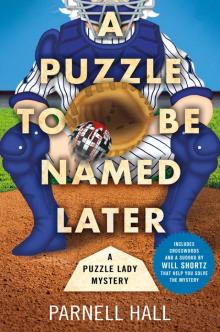 A Puzzle to Be Named Later--A Puzzle Lady Mystery
A Puzzle to Be Named Later--A Puzzle Lady Mystery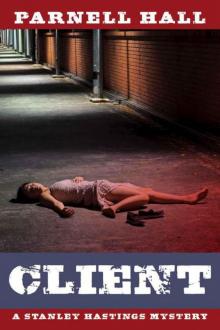 05-Client
05-Client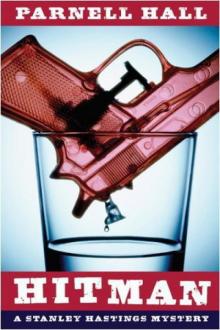 16 Hitman
16 Hitman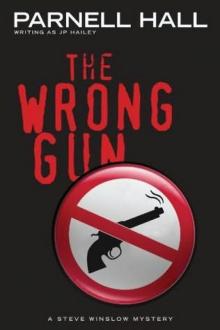 SW05 - The Wrong Gun
SW05 - The Wrong Gun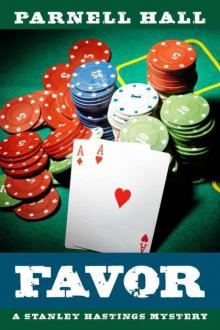 3 Favor
3 Favor Last Puzzle & Testament
Last Puzzle & Testament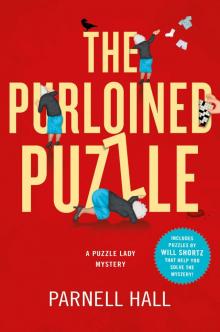 The Purloined Puzzle
The Purloined Puzzle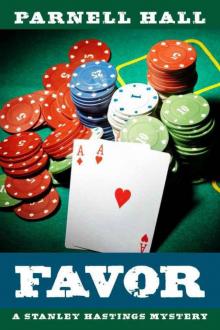 03-Favor
03-Favor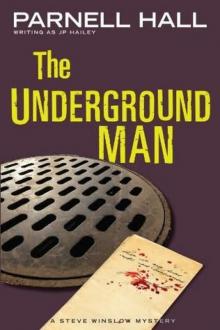 SW03 -The Underground Man
SW03 -The Underground Man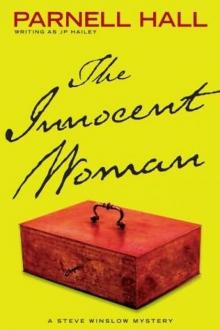 The Innocent Woman sw-6
The Innocent Woman sw-6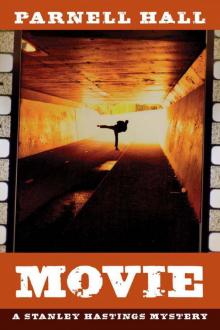 10 Movie
10 Movie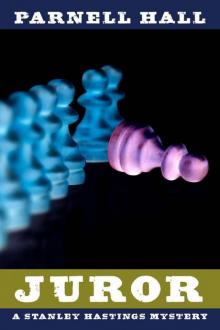 06-Juror
06-Juror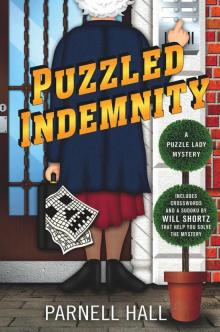 Puzzled Indemnity
Puzzled Indemnity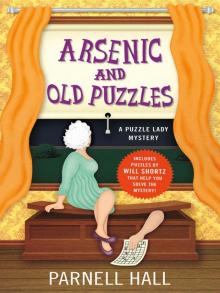 Arsenic and Old Puzzles
Arsenic and Old Puzzles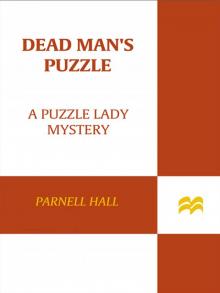 Dead Man's Puzzle
Dead Man's Puzzle Safari
Safari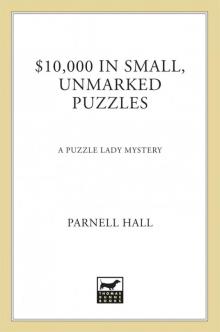 $10,000 in Small, Unmarked Puzzles
$10,000 in Small, Unmarked Puzzles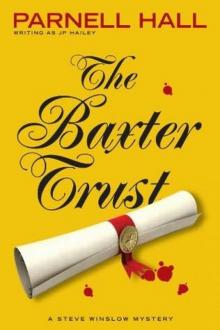 The Baxter Trust sw-1
The Baxter Trust sw-1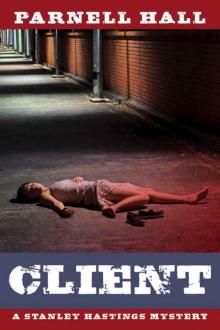 5 Client
5 Client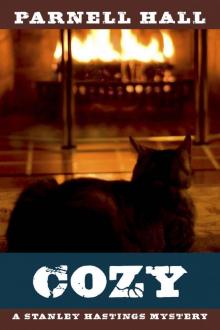 Cozy (Stanley Hastings Mystery, #14)
Cozy (Stanley Hastings Mystery, #14)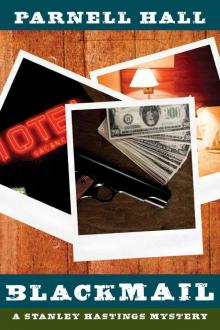 Blackmail
Blackmail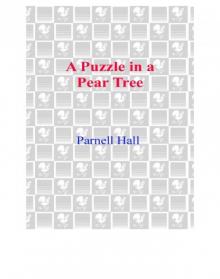 A Puzzle in a Pear Tree
A Puzzle in a Pear Tree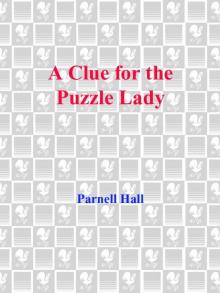 A Clue for the Puzzle Lady
A Clue for the Puzzle Lady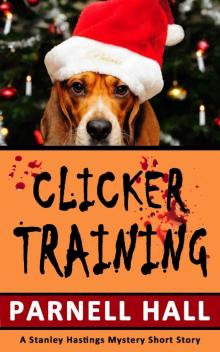 Clicker Training (Stanley Hastings Mystery, A Short Story)
Clicker Training (Stanley Hastings Mystery, A Short Story)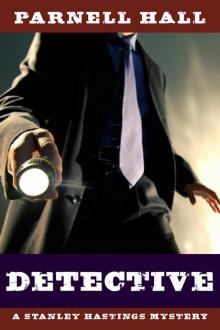 Detective (Stanley Hastings Mystery Book 1)
Detective (Stanley Hastings Mystery Book 1)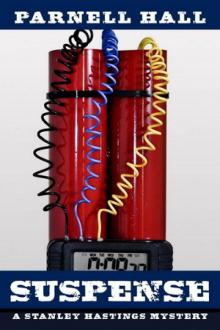 13 Suspense
13 Suspense